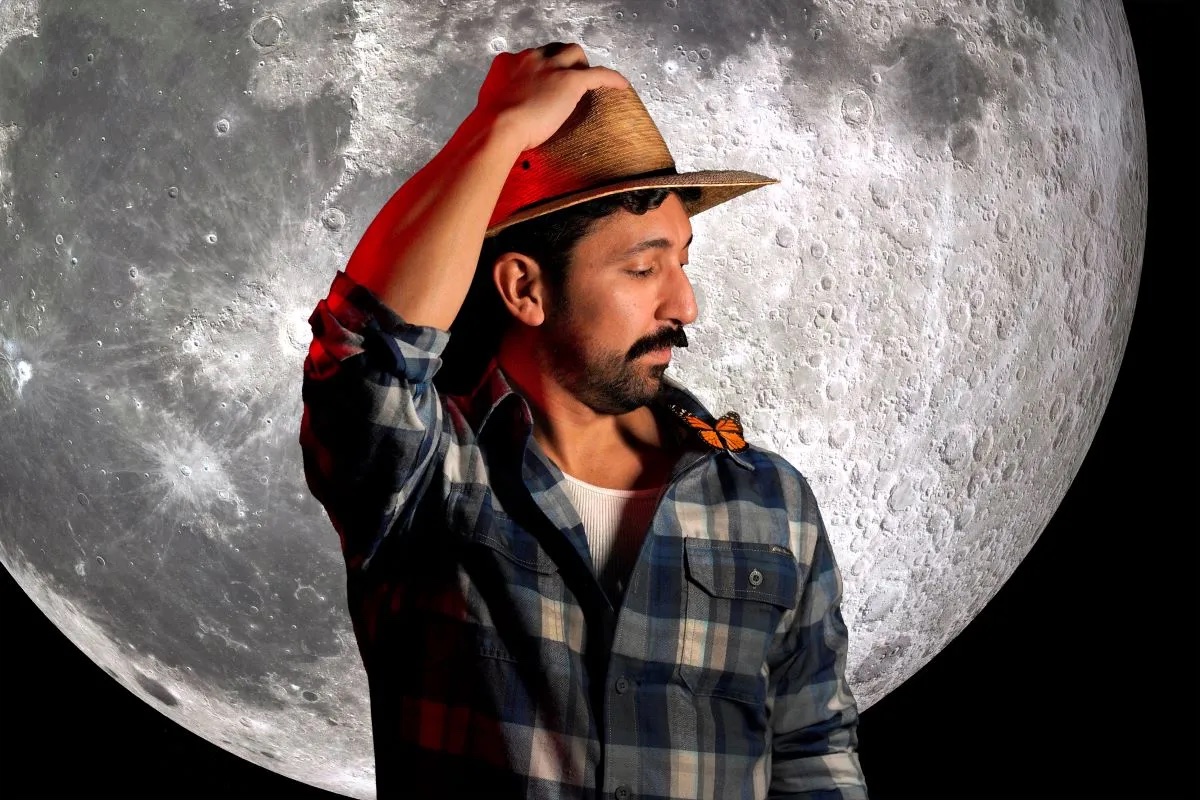Throughout his career in opera, baritone Efraín Solís has sung a long list of works steeped in anguish. But he admits that his latest assignment, singing the role of Laurentino in “Cruzar la Cara de la Luna,” moves him in a uniquely personal way.
“I feel the responsibility of this character,” Solís explained in a recent interview. “I really want to respect his history, who he represents. Both of my grandfathers have passed away, but I feel them a lot when I’m singing this piece—the weight of them, and the immense responsibility that comes with telling this story.”
The opera, by composer Jose “Pepe” Martinez and librettist Leonard Foglia, considers issues of immigration, memory and legacy in what has been called “the first mariachi opera.” Translated, the title is “To Cross the Face of the Moon.”
With Solís in the role of family patriarch Laurentino, this groundbreaking work makes its Bay Area premiere at West Edge Opera on July 23, directed by Karina Gutierrez and featuring the San Jose-based Mariachi Azteca led by Sixto Montesinos. It joins Monteverdi’s “The Coronation of Poppea,” a double bill of Stravinsky’s “The Nightingale” and Schoenberg’s “Erwartung,” and an orchestral preview of “Dolores,” a new work based on the life of activist Dolores Huerta, to complete the company’s summer offerings.
Solís, who sang the role of Mark, Laurentino’s grandson, in the opera’s earlier productions—commissioned and premiered by Houston Grand Opera in 2010, it’s since been performed in New York, El Paso, Paris and Santa Barbara—is singing Laurentino for the first time. It’s a role he says is freighted with meaning.
Laurentino, he explains, represents a large number of Mexican men, including Solís’ own grandfather, who came to the U.S. in the 1940s and ’50s as part of a U.S.-Mexico agreement to allow “braceros,” or farm workers, to enter the country to harvest crops.
The opera begins many years later. An aged Laurentino is in the hospital; his family gathers, and they have questions.
“They don’t know much about his history in Mexico, or why he chose to make the U.S. his permanent home,” said Solís. Foglia, whose contributions to Jake Heggie’s operas have made him one of the most sought-after librettists of our time, has given “Cruzar” a story of heightened emotion. Long-buried family secrets and powerful revelations fuel the drama, which also features mezzo-soprano Kelly Guerra as Renata, Laurentino’s wife. Soprano Aléxa Anderson, mezzo-soprano Alissa Aguilar, baritone Bernardo Bermudez, tenors Sergio Gonzalez and Moises Salazaar round out the cast.
Conductor Montesinos says the opera tells a powerful story.
“It goes deep into the personal journeys of these characters,” said Montesinos, who is head of instrumental studies at St. Mary’s College in Moraga. Originally from Houston, he says the opera made an indelible impression when Houston Grand Opera premiered it in 2010.
“There was so much buzz around it,” he said. “It was a revolutionary concept. They’d never had a mariachi band before, and in this piece, the mariachi band is the orchestra.”
It worked brilliantly, he said. “The art form of mariachi music—something that’s traditionally been for community events and background music—was thrilling in this piece.”
Montesinos, who conducts a range of works St. Mary’s and has led musical theater productions throughout the Bay Area, has been working with the Mariachi Azteca group on “Cruzar.” He describes the score by Martinez—often dubbed “the Mozart of Mariachi”—as thrilling.
“The music is amazing,” he said, “so good for expression, for carrying this message of courage—that what these people did, to leave their families and everything they knew to go to this completely different world, to cross the border, not knowing the language, was a huge risk.”
Solís agrees. “I think what’s most beautiful about mariachi music is this: You can be singing about the most gut-wrenching, emotional thing, yet there is a tinge of hope, of happiness in there. There’s this beauty to it that is similar to opera. In ‘La Boheme,’ we listen to Mimi dying, and it’s the most beautiful thing you’ve ever heard. You’re sad, but you feel this hint of hope and you’re glad that she loved Rodolfo.
“When you describe mariachi music, you describe Mexican art, Mexican culture, the way we tell stories. It’s happy and it’s sad. This score is beautiful—bombastic at times, and also extremely intimate. I think that’s the exciting thing about what Pepe did. He was mariachi.”
West Edge Opera’s “Cruzar la Cara de la Luna” is at 3 p.m. July 23, 8 p.m. July 28 and 8 p.m. Aug. 5 at the Scottish Rite Center, 1547 Lakeside Drive, Oakland. Tickets are $10-$150 at westedgeopera.org or (510) 841-1903.
